While noted for their historical charm and timekeeping abilities, some of Montreal’s clocks are reputed to be haunted. Most of Montreal’s haunted clocks are located on St. James Street, an area associated with the extreme desecration of French colonial cemeteries by various financial corporations.
Welcome to the eightieth installment of the Haunted Montreal Blog!
With over 500 documented ghost stories, Montreal is easily the most haunted city in Canada, if not all of North America. Haunted Montreal dedicates itself to researching these paranormal tales, and the Haunted Montreal Blog unveils a newly researched Montreal ghost story on the 13th of every month!
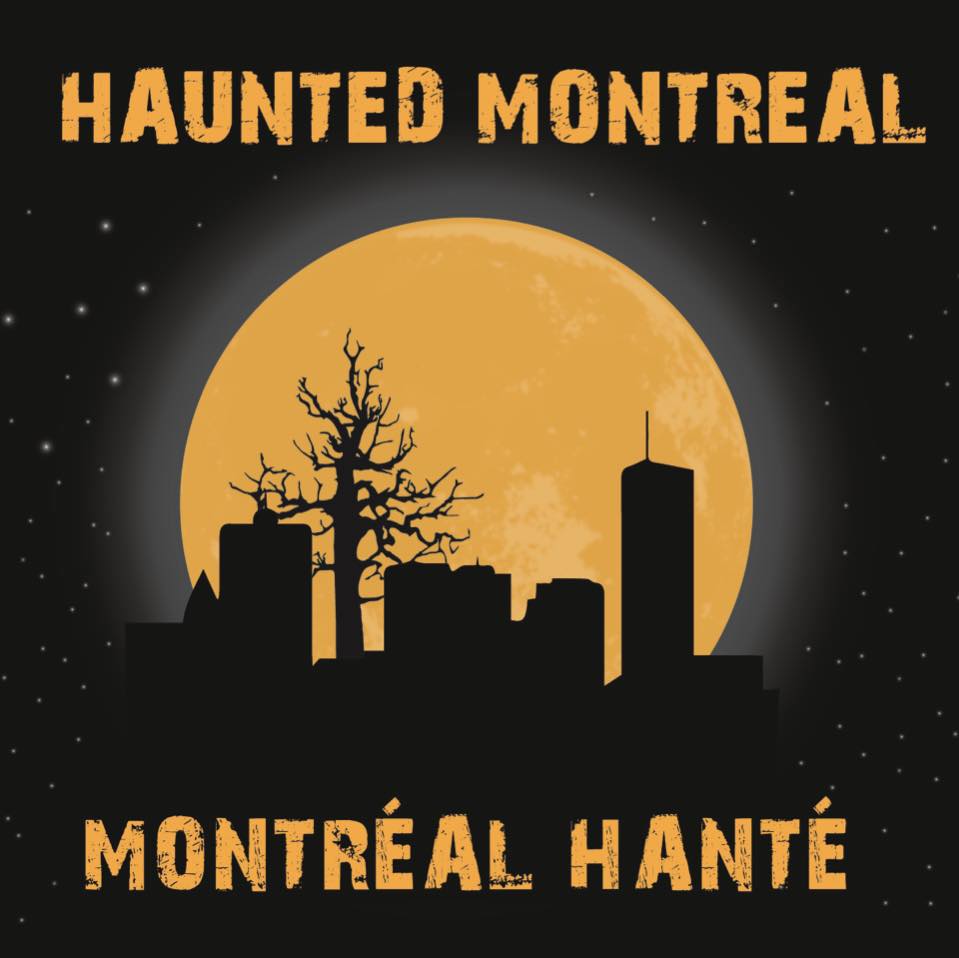
This service is free and you can sign up to our mailing list (top, right-hand corner for desktops and at the bottom for mobile devices) if you wish to receive it every month on the 13th! The blog is published in both English and French!
Haunted Montreal is pleased to announce that we are offering our regular ghost tours every Saturday evening on rotation up until June, when the season will be expanded:
Haunted Griffintown Ghost Walk
Our Haunted Pub Crawl is offered every Sunday at 3 pm in English and on the last Sunday of the month at 4 pm in French.

Also, our Paranormal Investigation into Sainte-Antoine Cemetery will be available on the first Friday and Saturday nights of the month from May to November.
While public tours are available Saturday nights and Sunday afternoons for the Haunted Pub Crawl, private tours can be booked at any time based on the availability of our actors.
Our Virtual Ghost Tour is also available on demand!
Additionally, our team is releasing videos of ghost stories from the Haunted Montreal Blog every Saturday, in both languages!
Our hosts include Holly Rhiannon (in English) and Dr. Mab (in French).

Want to give the gift of a haunted experience for the 2022 season?
You can now order a Haunted Montreal Gift Certificate through our website. They are redeemable via Eventbrite for any of our in-person or virtual experiences. There’s no expiration date.
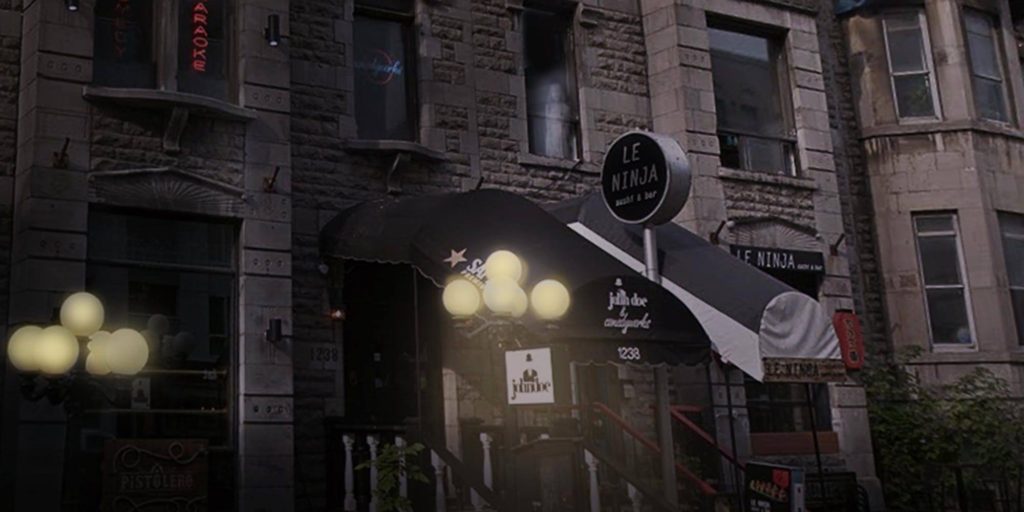
Lastly, we now have an online store for those interested in Haunted Montreal merchandise. More details are below in our Company News section!
This month we explore the Château Ramezay Museum in Old Montreal. Constructed in the 18th Century out of fieldstones and mortar, it is likely one of the most haunted buildings in the city!
Haunted Research
The Château Ramezay Museum in Old Montreal is by far one of the most haunted buildings in the city. Just across the street from City Hall, the charming stone building welcomes thousands of visitors a year.
Built in 1705 as the Governor’s residence, the building has witnessed as host of other uses over the years. It was finally converted into a museum in 1895 and it still serves this purpose today.
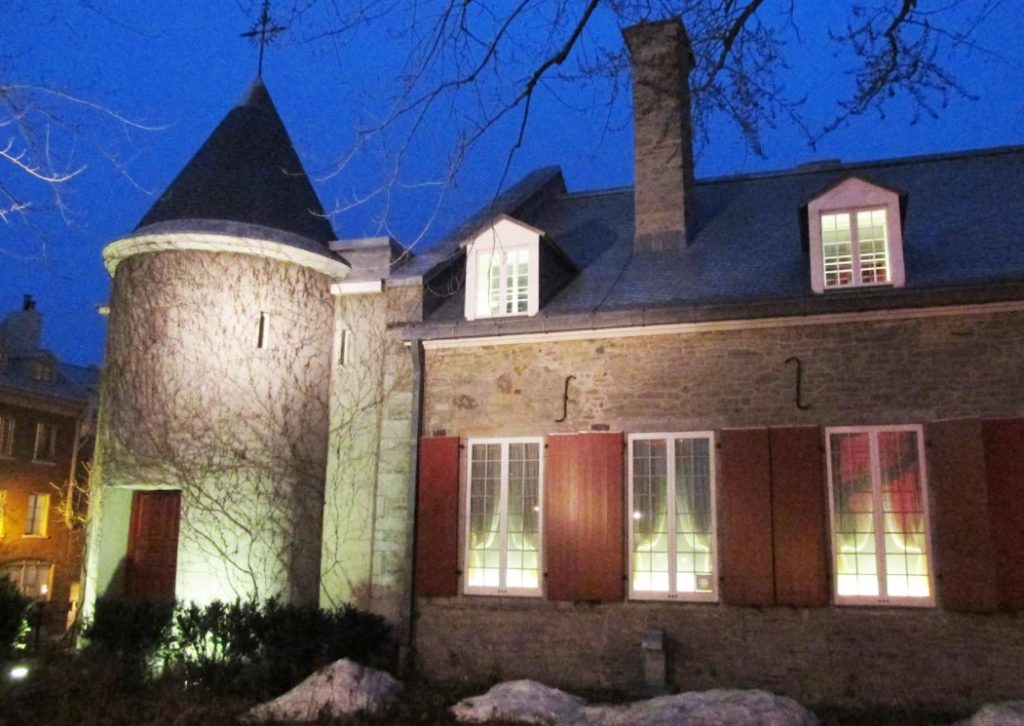
Inside, tourists often report various hauntings: the sounds of phantom footsteps, moaning noises coming from the fireplace, and people wearing period costumes who vanish into thin air.
According to one online review of the museum:
“My family and I went to the Chateau Ramezay in Old Montreal. My 17-year-old daughter and I were entering the ballroom when I heard a noise that sounded like someone’s heels tapping on the wooden floor and a then a light thump of a door closing. My daughter heard these same sounds. However, I saw from the corner of my eye a woman in period clothing going out of the ballroom from a door further in the room. There were a few other people in the building including guides in costumes so I didn’t think anything of it until I entered the ballroom fully and realised that there was no other door where I had seen the woman exit – and there was no one in the room ahead of us.”
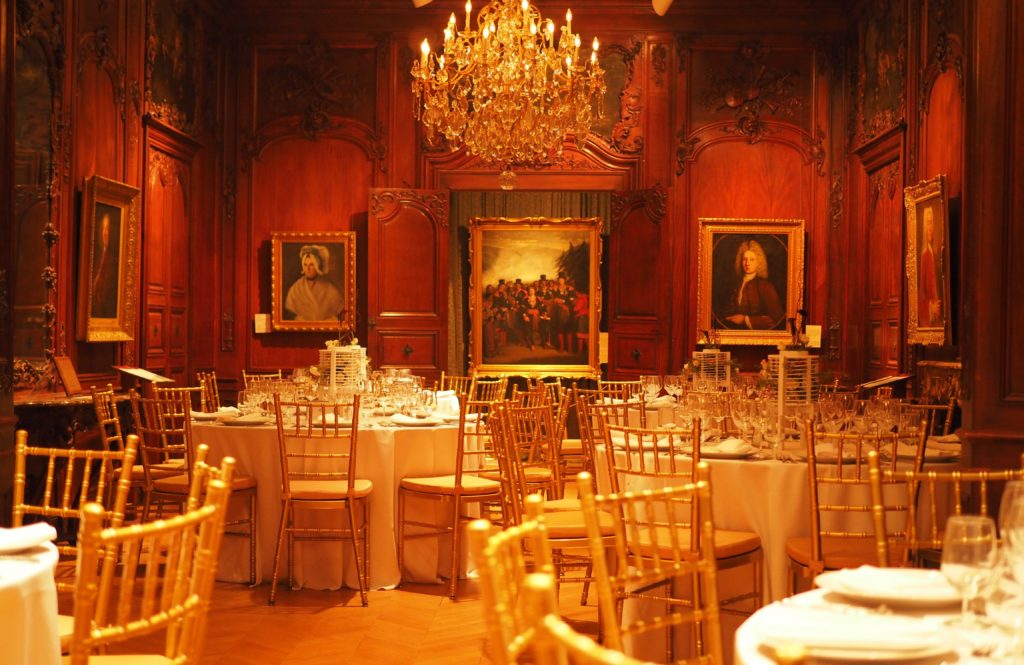
Staff members have had even more bizarre experiences.
Several years ago, certain employees were moving furniture in the museum and they heard an unearthly voice. At the beginning, it sounded like the grating of wood against the ground, but nothing was moving at the spot where the noise was from. Slowly, the noise transformed into a human cry, a loud wailing. The noise reached a high pitch – and then suddenly stopped.
On other occasions, paintings have fallen off the walls and the furniture has moved by itself. Sometimes, chairs and tables have been flung across a room, as though by an angry force.
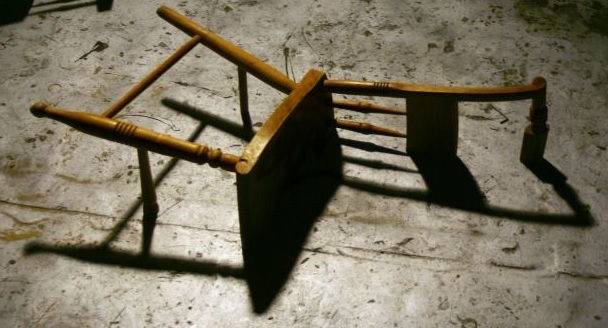
There is also a sulfurous stench, like the smell of rotten eggs, which often erupts out of nowhere. It usually vanishes as quickly as it appeared. Maintenance staff have checked the pipes and ventilation system and cannot find an explanation.
Journalist Mark Abley did an in-depth report into the Chateau’s hauntings in a 2014 Montreal Gazette article called “Montreal is a City of Ghosts”.
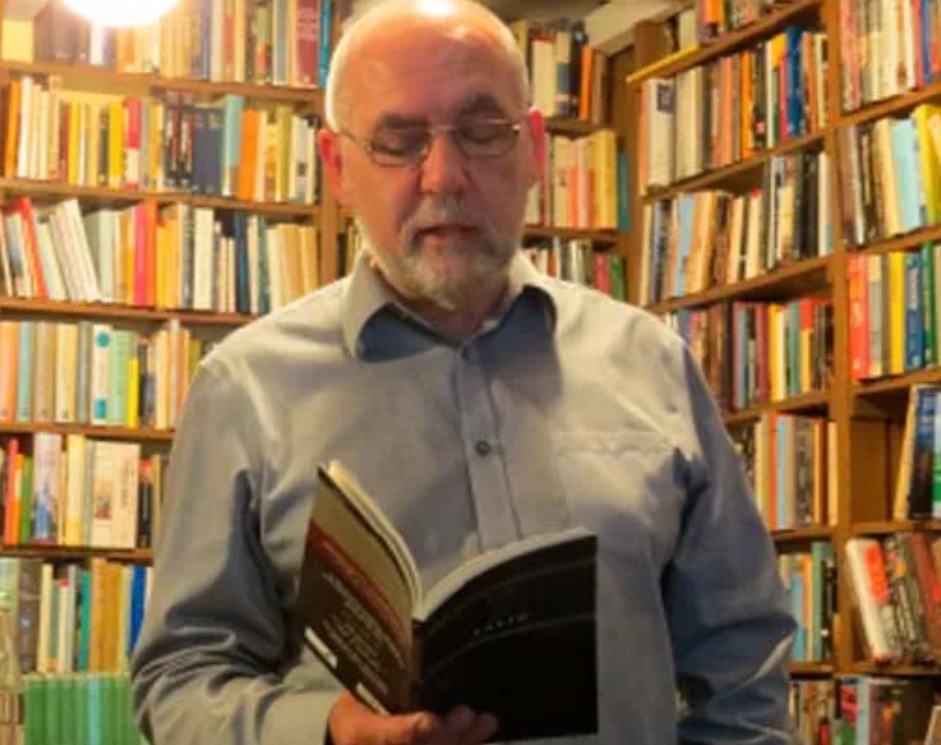
In the article, Abley interviewed a museology technician whom he calls “Monsieur L” to protect his anonymity.
According to Monsieur L:
“One morning I arrived at work. I opened the front door, I climbed the stairs, and I was alone in the building. I remember, the first thing I did was put my lunch in the fridge — and as I did that, I distinctly heard the sound of toilet paper being pulled off the metal holder in the women’s washroom by the staff kitchen.”
Monsieur L continued:
“I went out into the corridor and I noticed the door was slightly ajar. There wasn’t any light in the washroom. I knocked on the door, and when there was no answer I went in. And right away, I saw soap bubbles in the sink. A few minutes later, they had dissolved. Nobody else was in the building.”

According to Abley, Monsieur L has kept “a long list of odd occurrences at the museum since he began work there.”
For example, a young staff member once heard a voice calling her name from a nearby room while working alone. That room contains a portrait of Jacques Cartier, and the young lady is one of his direct descendants. In another case, “Staff members unlocked the heavy doors one morning to find a pile of brochures inexplicably scattered on the floor; on another occasion, two books had fallen from a shelf where everything else remained intact.”

There have also been cases of disembodied sneezing and ghosts allegedly sitting in chairs, causing the cushions to flatten before the eyes of shocked the staff.
Management at the Château Ramezay do not deny that their museum is haunted. According to Education Director Louise Brazeau: “Whatever it is,” it shows no sign of aggression. But it can make people feel afraid.”
Finally, following Monsieur L’s spooky introduction to the museum, he managed to capture the blurry image of a ghost in a photograph he took one day while at work. The Château Ramezay has since included the ghostly image in its branding, such as on video displays within the attraction.

With so much paranormal activity occurring within the Château Ramezay, the question arises as to who exactly is haunting it. To theorize such a question, it is important to look at the building’s history.
The Chateau was built in 1705, during the New France era, as the residence of then-governor Claude de Ramezay.
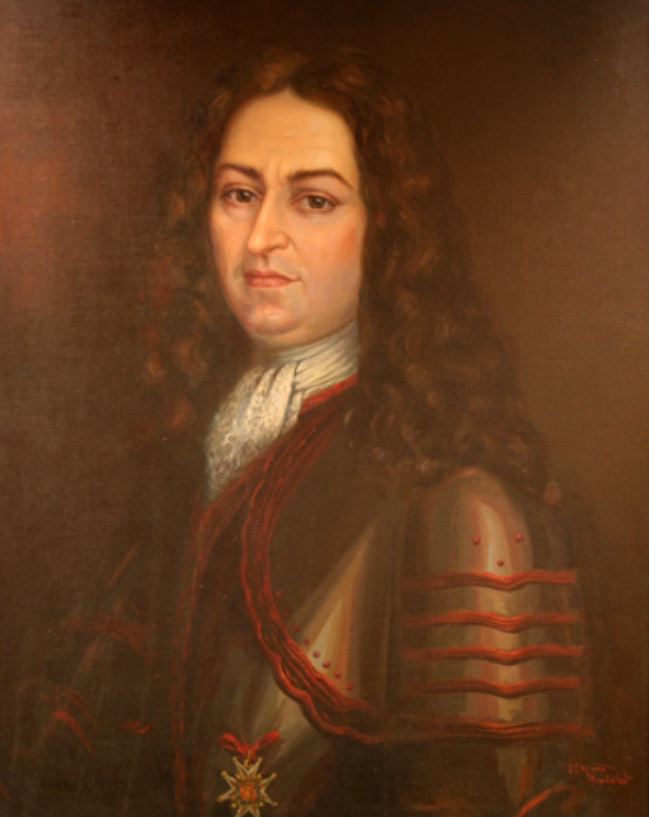
Known for his lavish tastes, Ramezay hired master architect and mason Pierre Couturier to design the sumptuous dwelling. Courtier built a thick stone house that was 66 feet long, three floors high and which featured four chimney-stacks. The large property originally included the residence, a fruit orchard, and a large ornamental and kitchen garden. Ramezay proudly boasted his home as “unquestionably the most beautiful in Canada.”
When Ramezay died in 1724, his descendants sold his beloved Chateau to the Compagnie des Indes, a fur trading company. This enterprise used the building as a warehouse for pelts and as a store to sell its wares.

Over the years, the Château Ramezay would change hands many times.
In 1775, American soldiers invading the city seized the building and transformed it into the U.S. Continental Army Headquarters.

Despite the best diplomatic efforts by Benjamin Franklin to get Montreal to join the fledgling United States of America, he failed to secure support from local residents.
The following year, the Yankees were expelled by British reinforcements. The Chateau was taken over by the British governor took it over for his personal residence.
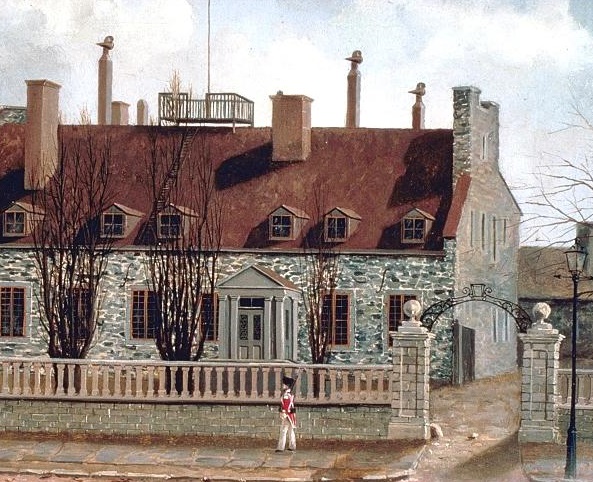
In 1878, it became the first medical building for Laval University, now the Université de Montréal. During that era, numerous patients died within the walls of the Chateau and many autopsies were performed as well.
Famous Irish author Oscar Wilde visited the Chateau’s gardens during lecture tour of Canada in 1882. According to lore, Wilde was so impressed with the gardens that it inspired him to write The Selfish Giant, a children’s story originally published in 1888.
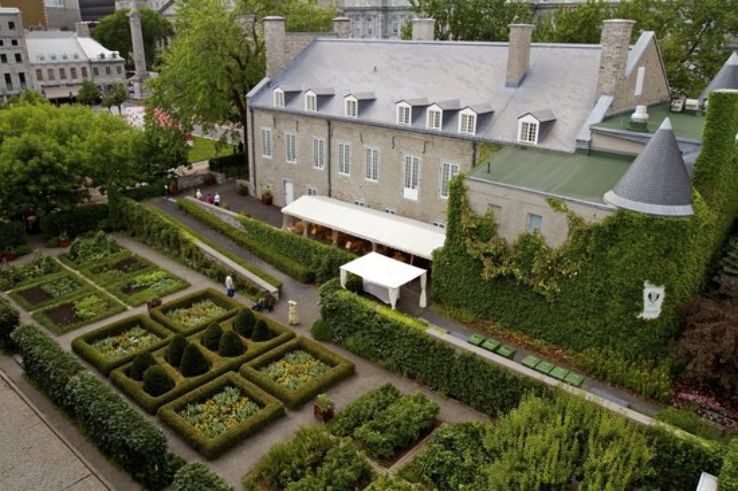
The Château Ramezay was finally made into a museum in 1895, after being purchased by the Antiquarian and Numismatic Society and saved from demolition. Their intention was to preserve the building and establish a free archeological, scientific and historical museum inside.
Curators collected and put on display a wide variety of items: paintings of famous people, like colonists, governors, bishops, fur traders and military heroes; old coins and documents; historical items including old weapons, Indigenous artifacts and other symbolic works; as well as curiosities of all sorts.
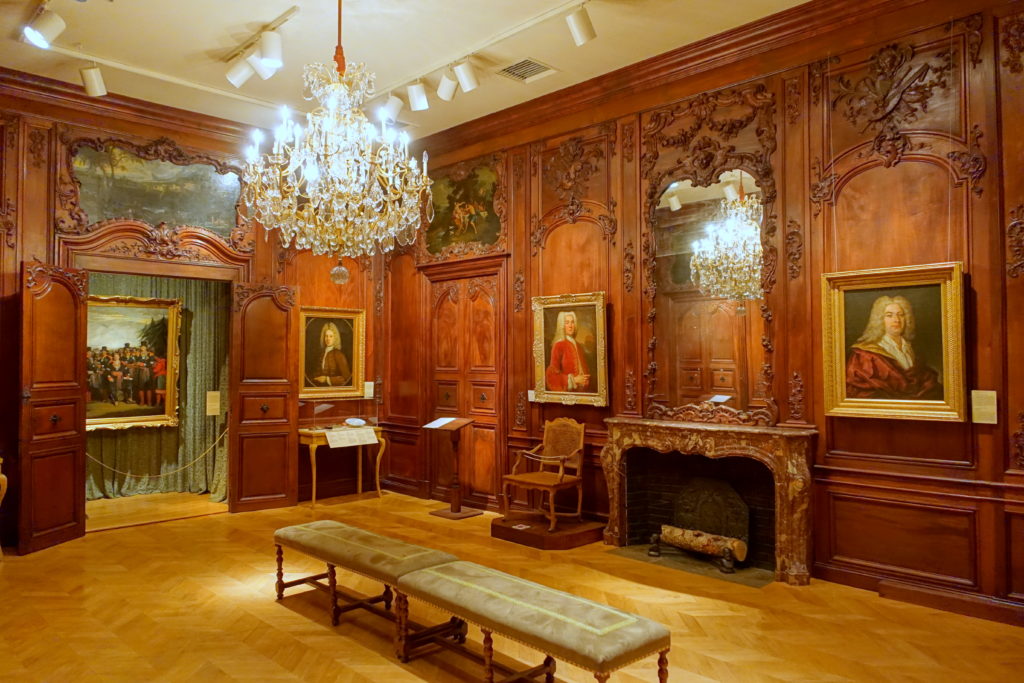
However, over the years the museum began to take on a haunted reputation due to all of the paranormal activity inside.
There are three prominent theories as to who is haunting the Château Ramezay. The first theory suggests that a guard named O’Leary, who began working there in 1895, haunts it. However, the details are very thin and more research is needed.

The second theory is connected to a gibbet cage that was once displayed and stored in the museum. The cage is related to one of Quebec’s most famous ghost stories – La Corriveau.
In 1763, a woman named Marie-Josephte Corriveau was hanged as a witch near Quebec City after murdering two husbands. She had allegedly killed them by pouring molten lead into their ears as they slept. As a message to other potential criminals, her body was placed in a gibbet cage. It was then hoisted up and hung from a tree branch at a Lévis crossroads near Quebec City – and left to publicly decompose for over a month.
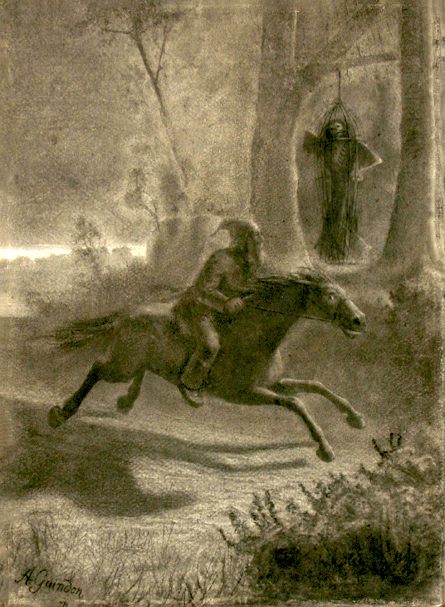
During this time, as her corpse deteriorated, it was said that her ghost terrorized unfortunate passers-by.
She was then buried, cage and all, in the cemetery of St. Joseph district, Lauzon.
The gibbet cage was “rediscovered” in 1849 – someone dug it up and stored in the parish church at St. Joseph. However, the cage was later reported stolen. Rumours suggest that it was peddled as a “curiosity” – and somehow ended up on display in the Château Ramezay.
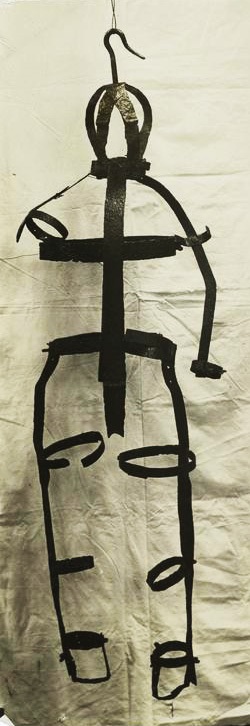
According to legend, La Corriveau returns to haunt her cage every Halloween and may have caused some problems in the museum’s early history.
However, today the creepy artifact is no longer in the Château Ramezay. In 1899, showman P. T. Barnum acquired the infamous gibbet cage, no doubt to be included in his “Greatest Show on Earth”.
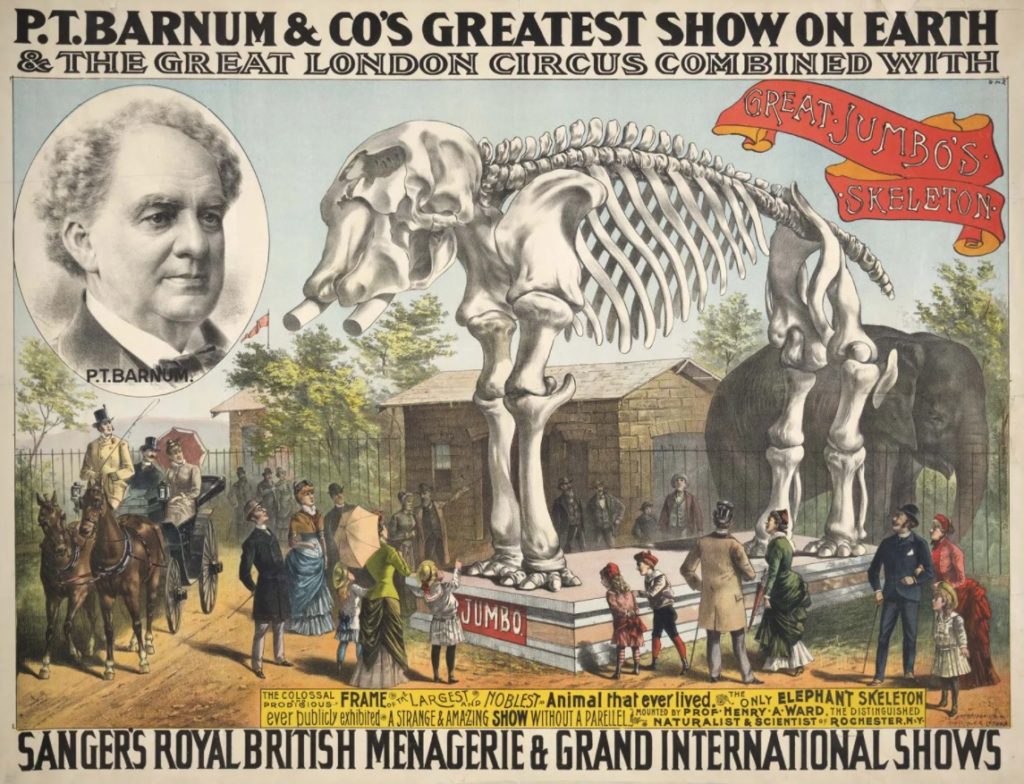
The cage eventually ended up at the Essex Institute in Boston, now the Essex Peabody Museum in Salem.
In the early 2010s, members of a Lévis historical society located the cage at the Essex Peabody Museum. Working with the museum, Corriveau’s cage was soon donated to the Musée de la Civilisation in Quebec City, where it remains to this day.
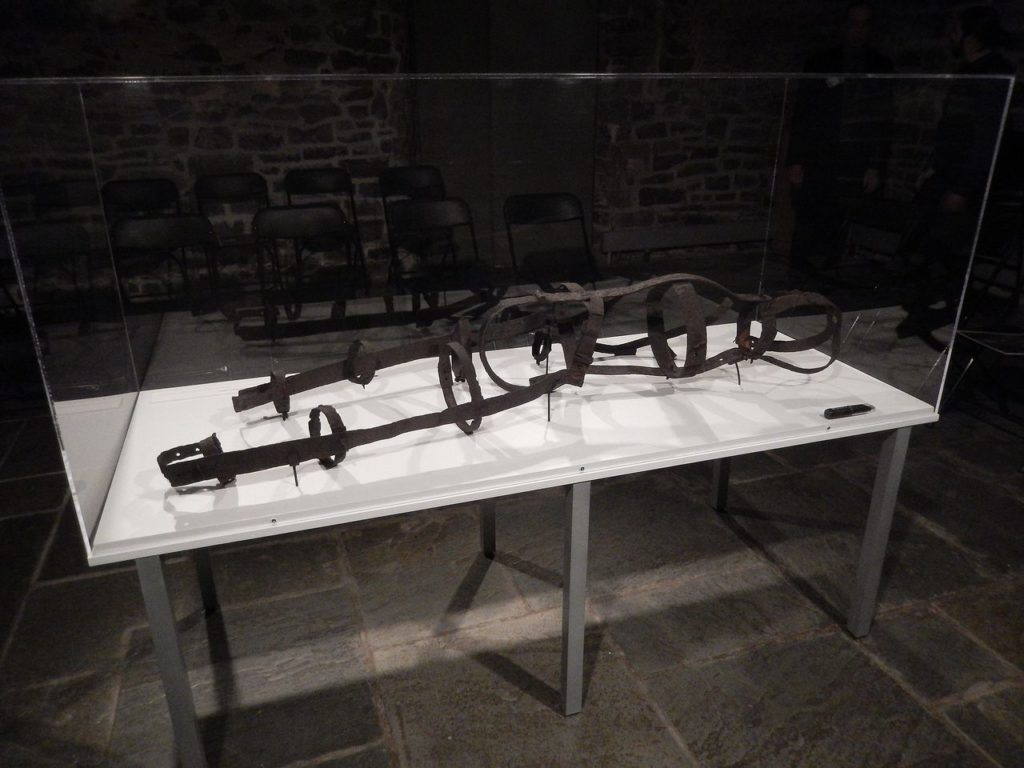
This raises questions about the credibility of the second theory.
Finally, the third theory is related to the last warden who lived inside the museum, a certain Miss Anna O’Dowd. In the old days, the museum’s curators lived in the building on the top floor. A flat, or apartment, was reserved for these guardians. With such a valuable collection inside the museum, it was ideal to have someone living there.
Miss O’Dowd was very meticulous and detail-oriented in her presentation of the museum’s displays and in the upkeep of her living space.

Apparently, she did not like any of the other staff moving things without her explicit permission. Miss O’Dowd was said to be a “perfectionist”.
Needless to say, after stressful encounters when disobedient staff members re-arranged her work without permission, Miss O’Dowd often felt anxiety.
As such, she always enjoyed a nice, piping hot bath at the end of the day – in her flat on the top floor of the Château Ramezay.

According to the legend, one day in 1985, staff members arrived and were surprised that Miss O’Dowd was not there to greet them and instruct them about their work for the day. They eventually went up to her flat and knocked on the door.
When there was no answer, they cautiously entered the apartment to see if Miss O’Dowd was okay.
They did not see anyone in her bedroom, but unfortunately, upon entering the bathroom they made a horrific discovery. Floating in the bathtub was Miss O’Dowd’s bloated corpse.

There was no conclusion as to how or why she had died in the intimacy of her flat in 1985. Many believe that Miss O’Dowd suffered from a heart-attack or stroke while trying to relax in her piping hot bathtub. Other ominous rumours have suggested far worse.
This third theory suggests that Miss O’Dowd haunts the building, forever upset that others continue to mess up her meticulous work. As a perfectionist in life, it is quite possible that her ghost is a perfectionist in death, albeit in a more deranged and paranormal way.
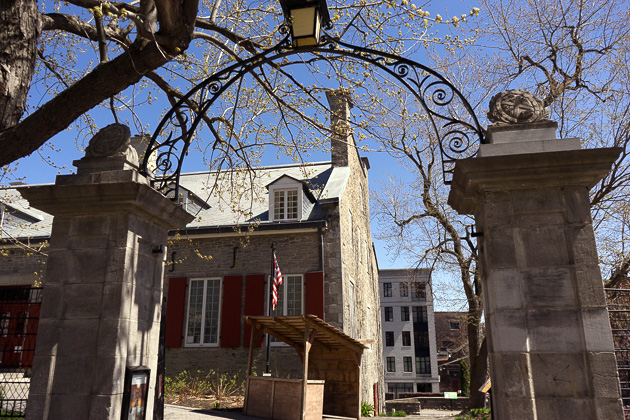
Whatever the case, whichever theory is correct – if any – the Château Ramezay is one of the most haunted buildings in the city.
Visit this museum at your own risk!
Company News
Haunted Montreal is pleased to announce that we are offering our regular ghost tours every Saturday evening on rotation up until June, when the season will be expanded:
Haunted Griffintown Ghost Walk
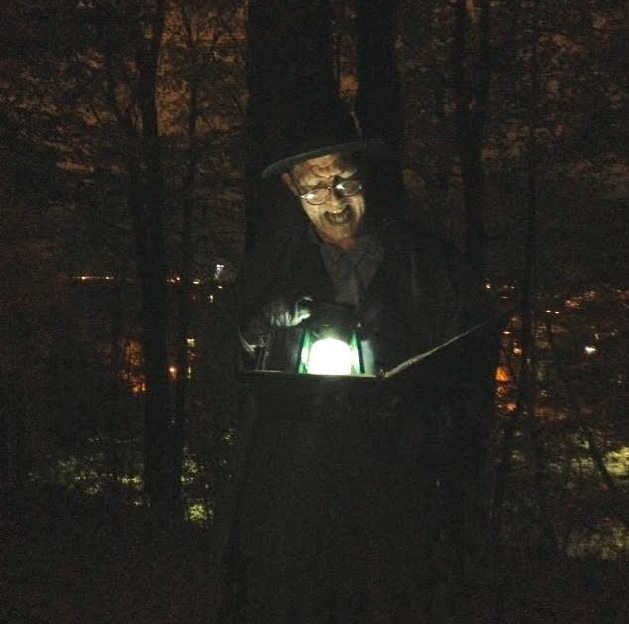
Our Haunted Pub Crawl is offered every Sunday at 3 pm in English and on the last Sunday of the month at 4 pm in French.
Finally, our Paranormal Investigation into Sainte-Antoine Cemetery will be available on the first Friday and Saturday nights of the month from May to November.
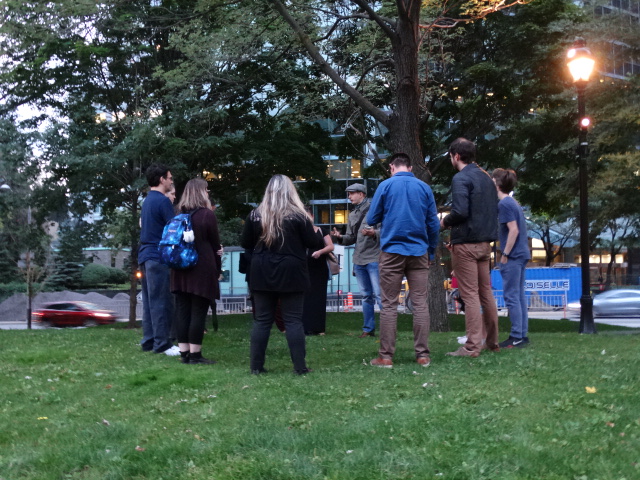
While public tours are available Saturday nights and Sunday afternoons for the Haunted Pub Crawl, private tours can be booked at any time based on the availability of our actors.
Our Virtual Ghost Tour is also available on demand!

For private tours, clients can request any date, time, language and operating tour. These tours are based on the availability of our actors and start at $170 for small groups of up to 7 people.
Email info@hauntedmontreal.com to book a private tour!
Furthermore, our team is releasing videos every Saturday, in both languages, of ghost stories from the Haunted Montreal Blog. Hosted by Holly Rhiannon (in English) and Dr. Mab (in French), this new initiative is sure to please ghost story fans!

Please like, subscribe and hit the bell!
In other news, if you want to send someone a haunted experience as a gift, you certainly can!
We are offering Haunted Montreal Gift Certificates through our website and redeemable via Eventbrite for any of our in-person or virtual events (no expiration date).
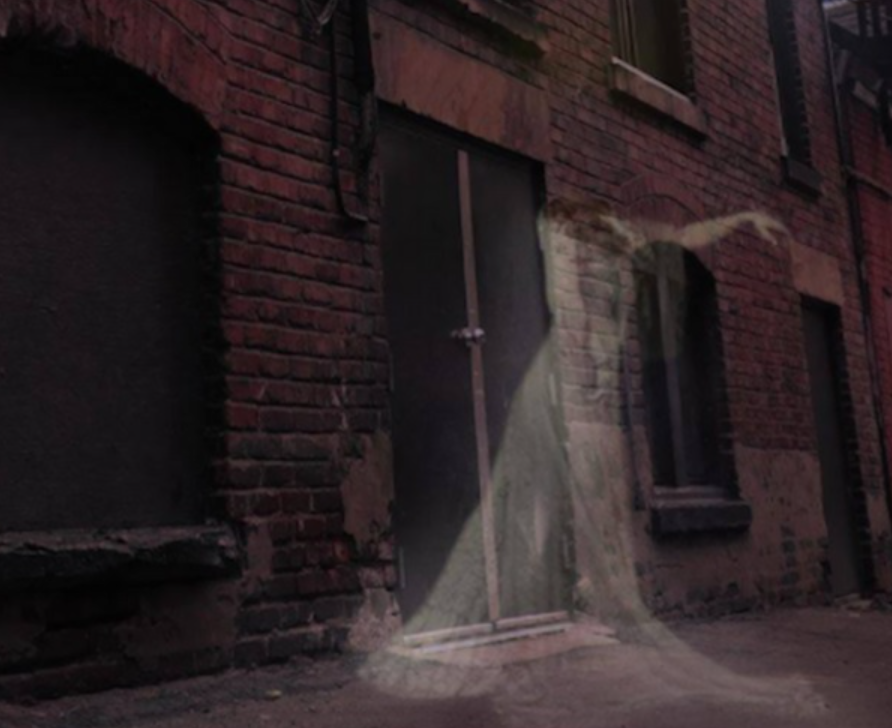
Finally, we have opened an online store for those interested in Haunted Montreal merchandise. We are selling t-shirts, magnets, sweatshirts (for those haunted fall and winter nights) and mugs with both the Haunted Montreal logo and our tour imagery.
Purchases can be ordered through our online store: shop.hauntedmontreal.com

Haunted Montreal would like to thank all of our clients who attended a ghost walk, haunted pub crawl, paranormal investigation or virtual event during the 2021 season!
If you enjoyed the experience, we encourage you to write a review on our Tripadvisor page, something that really helps Haunted Montreal to market its tours.

Lastly, if you would like to receive the Haunted Montreal Blog on the 13th of every month, please sign up to our mailing list.
Coming up on May 15th: Fort de la Montagne
The first residential school in what is now modern-day Canada was established in 1675 at the foot of Mount Royal. Sulpician priests and teacher Marguerite Bourgeoys ordered the construction of the imposing Fort de la Montagne, which was designed to evangelize Indigenous “students”. This Catholic project was called the “Mountain Mission”. To ensure that Indigenous warriors could not rescue their brethren, colonial workers constructed 13-meter high walls and four stone towers with ominous gun ports around the school. Once the site was deemed secure, Marguerite Bourgeoys began teaching ghostly stories to try to indoctrinate her “students” into the Catholic religion. Today, only two towers of the old fort remain – and they are reputed to be haunted.
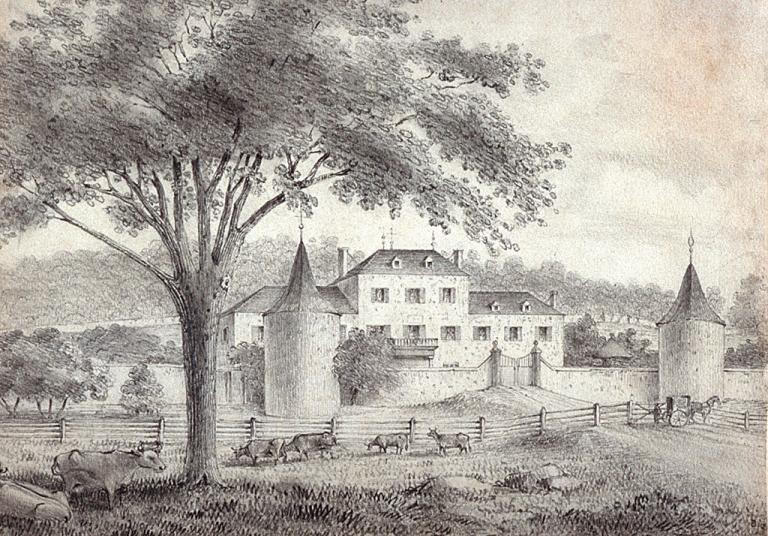
Author:
Donovan King is a postcolonial historian, teacher, tour guide and professional actor. As the founder of Haunted Montreal, he combines his skills to create the best possible Montreal ghost stories, in both writing and theatrical performance. King holds a DEC (Professional Theatre Acting, John Abbott College), BFA (Drama-in-Education, Concordia), B.Ed (History and English Teaching, McGill), MFA (Theatre Studies, University of Calgary) and ACS (Montreal Tourist Guide, Institut de tourisme et d’hôtellerie du Québec). He is also a certified Montreal Destination Specialist.
Translator (into French):
Claude Chevalot holds a master’s degree in applied linguistics from McGill University. She is a writer, editor and translator. For more than 15 years, she has devoted herself almost exclusively to literary translation and to the translation of texts on current and contemporary art.

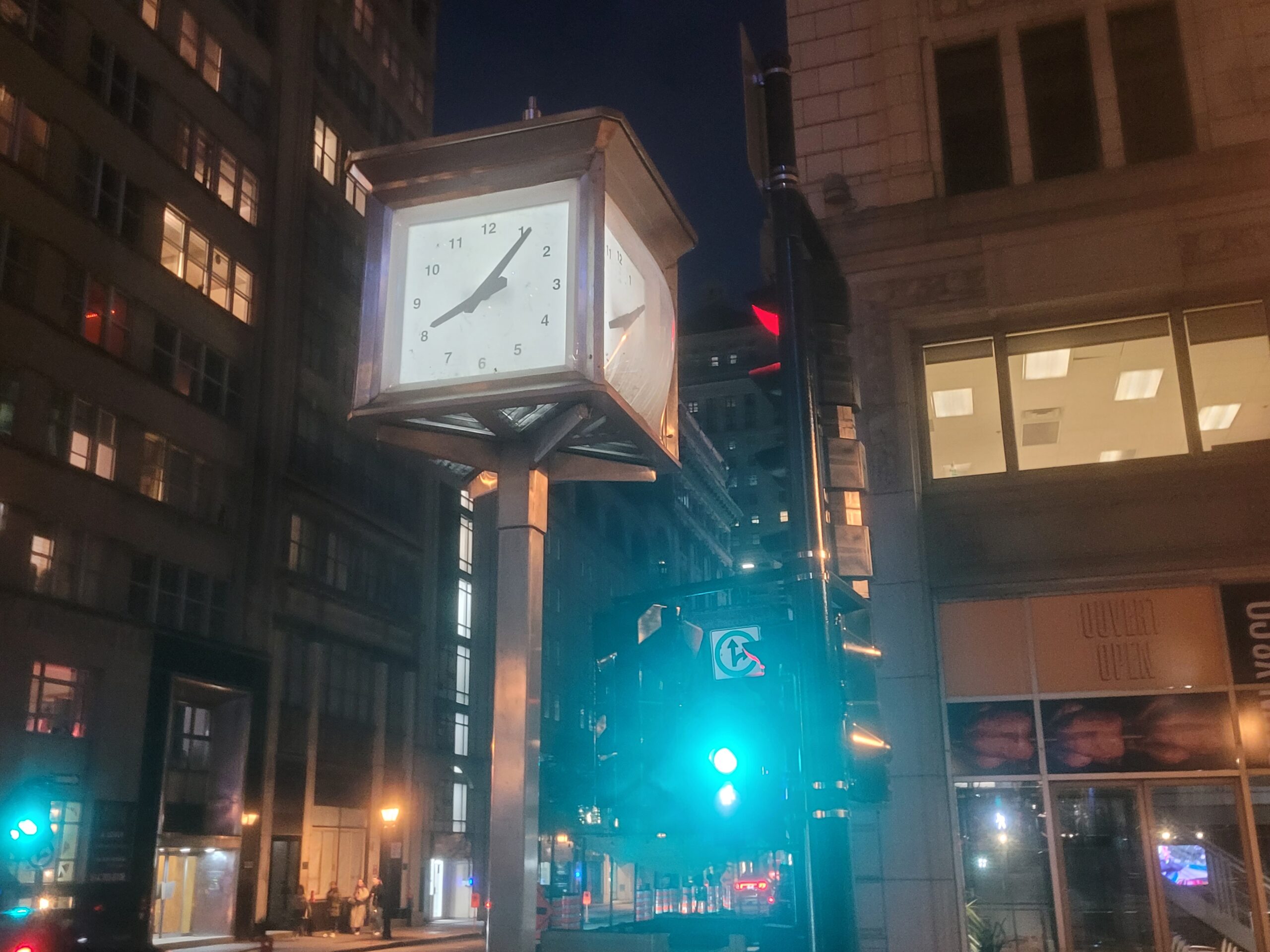

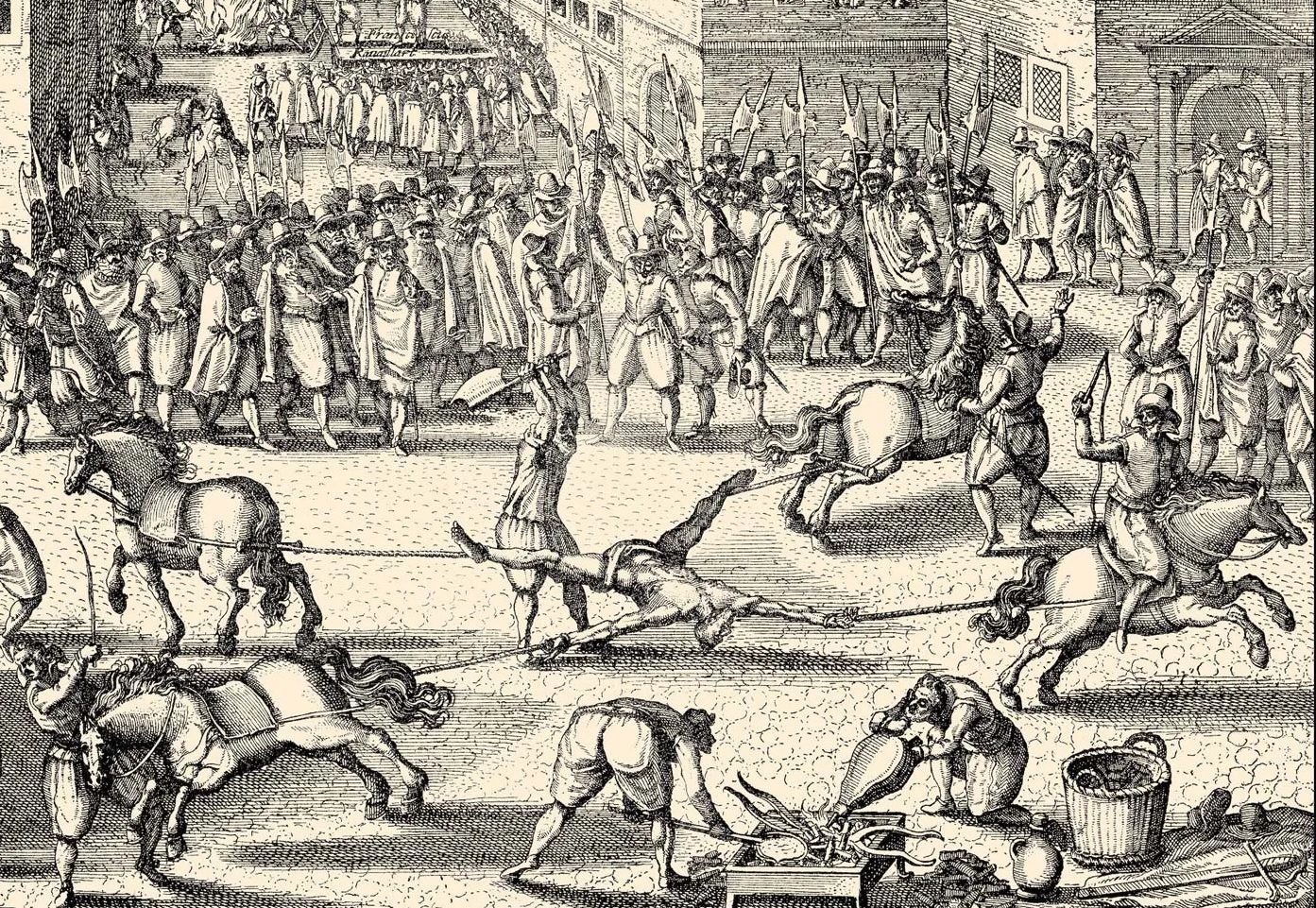
Comments (0)